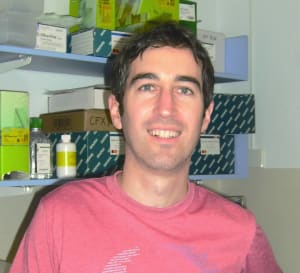Luke Selth

About Luke Selth
Androgen receptor splice variants: novel drivers of castration-resistant prostate cancer
The androgen receptor (AR), which mediates the action of male sex hormones, androgens, fuels prostate cancer. Therefore, the primary treatment for prostate cancer is androgen deprivation therapy (ADT) which prevents AR signalling. Unfortunately, almost all patients develop resistance to ADT and their cancers resume growth despite hormone therapy. These cancers that gain resistance to ADT and continue to spread are termned castration-resistant prostate cancer (CRPC).
Recent research has revealed that highly active variants of AR rather than the normal AR protein may be the key drivers of CRPC. These androgen receptor variants (ARVs) usually lack the ability to bind androgens and are independent of the presence/absence of androgens. Therefore, ARVs can easily drive prostate cancer even during ADT. Recent studies have shown that these ARVs increase in response to castration and other AR-targeted therapies. These studies point to a role of ARVs in mediating ADT-resistance and the progression of the disease towards CRPC. Dr. Luke Selth proposes to study the molecular mechanisms by which AR variants initiate and drive CRPC. He will identify the precise genes activated by AR variants to promote CRPC. Dr. Selth will also determine the co-factors that regulate ARV-driven CRPC.
Dr. Selth’s research will be a crucial next step in the development of strategies to counter the role of AR variants in CRPC development. His studies have the potential to be used as a platform for the development of new medications against ARVs, which will potentially prevent CRPC development and progression. Dr. Selth’s results will also inform clinical management strategies for men with metastatic prostate cancer.
Award
The 2012 Foundation 14 – PCF Young Investigator Award
Luke Selth, PhD
University of Adelaide, Dame Roma Mitchell Cancer Research Laboratories
Mentor
Wayne Tilley, PhD









